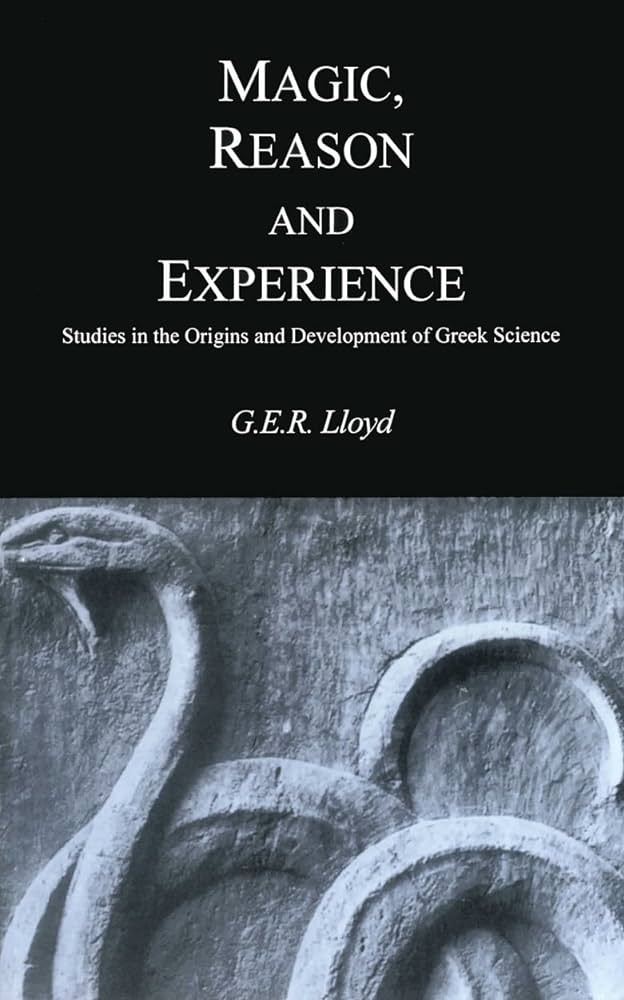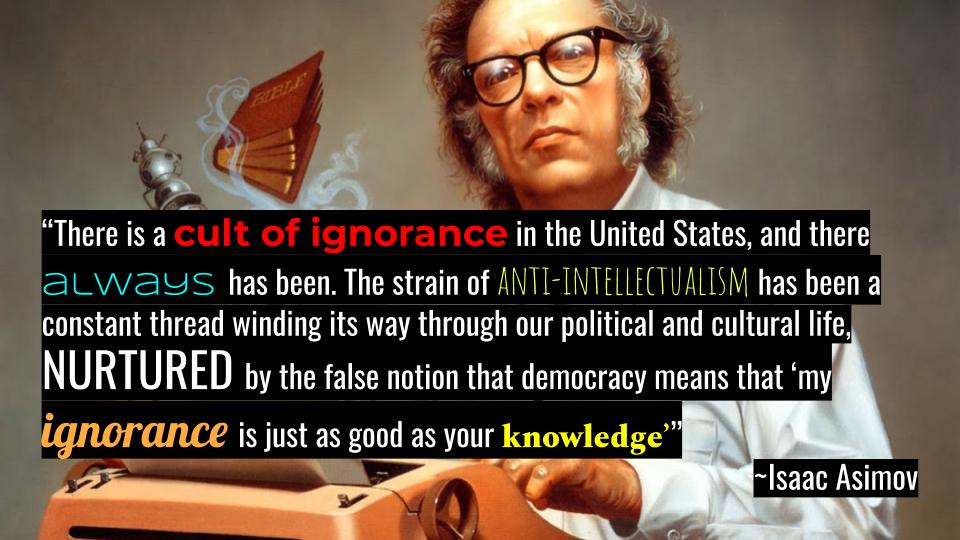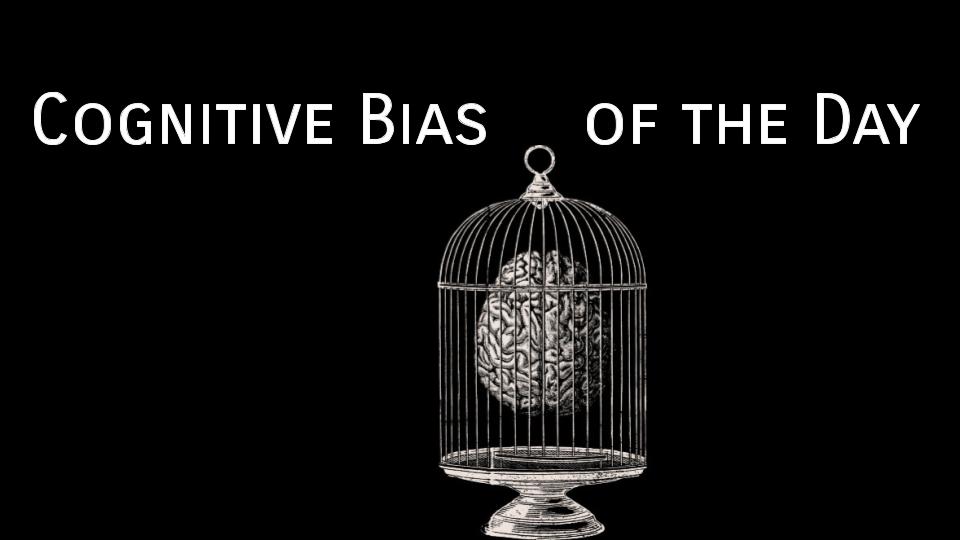Problems/Solutions
The past is a foreign country;
they do things differently there.
~L.P. Hartley
Philosophy is dead
Teaching an introductory course in philosophy requires more assumptions than this instructor is comfortable with. First off, you have to (at least provisionally) demarcate, or set some boundaries, regarding what philosophy is and what philosophy isn't. Unfortunately for this instructor, however, philosophy has been different things at different times and different places.
For example, in classical Greece, it is difficult to distinguish philosophy from what today we would call the beginnings of natural science. Is philosophy the same as science, then? I think we can all agree that that's definitely not the case. But there is a bit of philosophy in science. Allow me to clarify.
The origins of natural science come from multiple, sometimes unexpected, origins, many of them going back to ancient Greece. For example, Freeman (2003: 7-25) discusses the competitive nature of Greek debate and the rejection of supernatural explanations by philosophers, beginning with Thales of Miletus. This competitiveness and rejection of non-natural causes are obviously an important part of what would eventually become science. But, and this is important, it's not the whole picture.

Here's another important ingredient. Chapter 4 of G.E.R. Lloyd's (1999) Magic, Reason, and Experience makes the case that practices in political debate made their way into the study of the natural world too. He shows how the Greek word for witness was the root of the word for evidence (specifically in scientific discourse). He also shows that the word for cross-examination of a witness is related to the language behind the testing of a hypothesis. So aspects of the legal tradition from Greece made their way into the study of nature.
We often times want simple and intuitive explanations, but the complexity of the world does not allow for that. And so we should understand the origins of complex institutions to be multifactorial, and we should expect that the essential ingredients of complex institutions are sometimes spread thinly across time. The origins of natural science are, in fact, extremely variegated. There are some elements of science that came about in ancient Greece, yes. But there are some elements of science that were not fully formed until the early modern era, from about 1500-1800 CE. Other elements had to wait longer still before they were fully codified; this is something that we will see in this course.
And so, I would never for a second want to suggest that philosophy single-handedly gave birth to science; but I will say that it was there during its conception, it was present during science's long gestation period, and it played a non-negligible role in its birth. And yet, this doesn't get us any closer to defining philosophy, and anyone who is tasked with teaching it still has a problem on their hands.

Here's another problem that arises if someone is trying to teach an introductory course in philosophy: many are predisposed to think of philosophy as bullshit. Bullshit, by the way, is actually a technical term in philosophy. I'm not kidding. Harry Frankfurt (2009; originally published in 2005) argues that bullshit (a comment made to persuade, regardless of the truth) has been on the rise for the last several decades. How do you know a bullshitter? “The liar cares about the truth and attempts to hide it; the bullshitter doesn't care if what they say is true or false, but rather only cares whether or not their listener is persuaded” (ibid., 61).
Students/colleagues who instinctively think little of philosophy don't usually come out and say the word "bullshit", but it lurks somewhere in their minds. To be honest, I don't completely disagree with them. Some philosophy is bullshit. In fact, in a follow-up to Frankfurt's 2005 monograph, Oxford philosopher G. A. Cohen charges that Frankfurt overlooked a whole category of bullshit: the kind that appears in academic works. Cohen argues that some thinkers write in ways that are not only unclear but also unclarifiable. In Cohen's second definition, which applies to the academy, bullshit is the obscure that cannot be rendered unobscure. And so, there is bullshit in philosophy, because there are (unfortunately) some philosophers who write/wrote in a completely unintelligible way. It sounds like word salad to yours truly. They were completely indifferent to having precision in meaning, and this is exceedingly regrettable for the discipline (see Sokal and Bricmont 1999). In fact, we're still trying to get past that caricature of what philosophy is.
But here's where the problem lies. It's not all bullshit. If you argue that much of philosophy is unnecessarily obscure and even pointless, consider me an ally. But if you think no philosophy is or has ever been worthwhile, then you have another thing coming.
This latter objection to philosophy, the notion that no philosophy is or has ever been worthwhile, is (I think) symptomatic of a profound anti-intellectualism that we find in our society. I'm sure you've met people that don't recognize when their beliefs are inconsistent (or self-contradictory). Perhaps you've met people who believe in completely incoherent conspiracy theories about new world orders, vaccines, and/or reptilian aliens. I've certainly met people who proudly claim that they read no books but the Bible, which (alarmingly) they believe to have been originally written in English (which is literally not possible). This, and I hope you share my sentiments, is not okay.
Decoding Philosophy

Sidebar
I actually have a theory as to why some people instinctually dislike philosophy. It has to do with something called the halo effect. First, take a look at the Cognitive Bias of the Day below.

Cognitive Bias of the Day
The halo effect, first posited by Thorndike (1920), is our tendency to, once we’ve positively assessed one aspect of a person (or brand, company, product, etc.) to also positively assess other unrelated aspects of that same entity (see also Nisbett and Wilson 1977 and Rosenzweig 2014).
Rosenzweig's analysis of this bias is particularly enlightening. He shows that this bias is rampant in the business world. Consider Company X. Let me first tell you that Company X has had record bonuses for higher management two years in a row. Now let me ask you a question: Do you think that management at Company X is exceptionally good? In order to make a truly educated guess, you'd have to look at more than the bonuses of the executives. You'd have to also look at retention rate, overall profits, how competitors are doing, etc. But the mind naturally wants to say, "Yes! There must be good management there, because why else would there be record bonuses for high management!" This is the halo effect at work, and if you don't pay attention to how this bias influences your assessments of firms and market behavior, then you are going to make mistakes that will cost you money.
How does this explain why philosophy is looked down upon? My general sense is that, prior to a college introductory course, most students know very little or nothing about philosophy. The reasons for this are complicated, as stated above, but suffice it to say that people don't know how to feel about this discipline. Hence, the mind feels uneasiness about this subject. Uneasiness is not something that the human mind is built to endure. We naturally look for resolutions to any kind of cognitive dissonance (see Tavris and Aronson 2020). And so, when faced with a discipline we've never been exposed to before, we think to ourselves, "Had this subject been worth a damn, I would've already known about it." And so, this dissonance is resolved by deciding that the subject isn't really worthwhile.
It could also be the case that as students are choosing their majors, they lack deep and substantive reasons for choosing said majors. After all, they don't know much about the field yet. And so, some feel the need to denigrate other disciplines so as to ease cognitive dissonance. In other words, they feel a need to have good reasons for why they chose their discipline, they don't have them, and so they construct reasons why other disciplines "suck." The general idea is that the mind is doing something like this, "My discipline [which I don't know much about yet] is way better than these other disciplines since [insert whatever I can think of in the moment]."
That's at least part of my theory...
Solutions
None of the preceding, by the way, even remotely solves our demarcation problem, the setting of boundaries between what counts as philosophy and what doesn't. A standard "solution" to this problem is to use a question-based approach in introductory classes. In other words, the idea is to pose questions that are traditionally accepted as being philosophical, whatever that may mean, and look at the responses of professional philosophers. This is, more or less, the approach that I will take. However, I will not limit myself to philosophers. Being a voracious reader, I am able to add the input of thinkers from various disciplines to this conversation. As such, I will pose questions that are traditionally accepted as being philosophical and look at the responses of conventional philosophers (in a historical context) as well as the responses of psychologists, neuroscientists, mathematicians, and anyone else who might have something relevant to say.
Frankly, though, this instructor doesn't want to waste your time. To me, it wasn't enough to just cover traditional philosophical questions. So instead, I've decided to build a course that tells a story—actually, a history. I'm going to teach you a history that I think is worth knowing. It's not necessarily a history of philosophy. In a way, in fact, the philosophy is incidental. But don't worry. There'll be plenty of mind-bending philosophical ideas, and I'm bound to upset a few individuals (if I haven't already). Nonetheless, I think it's a story worth telling.


Collapse
The story that will be told in this course is, in a way, about collapse. If we are taking this negative perspective, we will be looking at how ideas can "collapse". But this is much too vague, especially after going on a tirade against some bullshit philosophers above. Let me begin with a more concrete example of collapse. Please enjoy your first Storytime! of this course:
It is difficult to imagine that our own civilization could collapse. It is even harder to imagine that our civilization could collapse and that humans centuries from now—if we still exist—would have no idea how our gadgets and technologies were made (although perhaps this is easier to imagine post-COVID). And yet, we know from the historical record that civilization has its highs and lows. At one point, Rome was the most splendid city in the world. Still it fell (and tragically so). In fact, historian Ian Morris called the fall of the Roman Empire the single greatest regression in human history.
We can speculate as to why it's difficult to think of our collapse in any realistic way. We do seem to have an end of history illusion. This is the bias that makes us believe that we are, for all intents and purposes, done "growing". We believe that our experiences have resulted in a set of personal tastes and preferences which will not substantially change in the future. We pretty much believe we're "done". This is, of course, not true at all, but other biases come in to block us from realizing this. The recall bias, for example, does not allow us to remember previous events or experiences accurately, especially if they conflict with input we are actively receiving. So, if your preferences did change, you are likely to think you've always held those preferences and not even notice the change.2
And so maybe these biases are active not only in our assessments about ourselves, but also in how we view history itself. Perhaps we have a predisposition to thinking that history is "done". We're "it". Civilizational complexity won't dip any lower than we are, and it won't rise much higher either.
But reason compels us to dive deeper. I don't have to remind you that civilizational collapse is a real threat. Global warming, nuclear weapons, superintelligent artificial intelligence, and other existential risks might change your life dramatically. Rest assured: The world will change; the only question is whether it will change through wisdom or through catastrophe.
This is the nature of collapse. It's the flipside of progress, it seems. And just like civilizations can rise and fall, so can ideas. In fact, ideas are sometimes a causal actor in the collapse of some civilizations (Freeman 2003). In this class, we'll look at one such collapse.


Important Concepts
I've taken the liberty of isolating most of the important concepts in each lesson and giving them their own section. Please take a moment to review the concepts below.
Some comments
Although in an introductory philosophy class you will not dive deep into the nature of logical consistency, since that is reserved for a course in introductory logic, I believe that you intuitively (and non-consciously) care about logical consistency. If you've ever seen a movie with a plothole and it bothered you, then you care about logical consistency. It's just that simple. Consistency just means that the sentences describing the event in the movie can all be true at the same time. But in plotholes, this is not possible. Some parts of the movie contradict other parts. And so, the movie contains inconsistencies and we intuitively sense something is wrong.
Logical consistency will be a cornerstone of everything we will be doing. We will build up conceptual frameworks (i.e., philosophical theories) and we will be perpetually on the lookout to ensure that the ideas in question do not contradict each other. As such, it is important that you understand this concept well. Logical consistency only means that it's possible that all the sentences in a set are true at the same time. That's it. Don't equate consistency with truth. Two statements can be consistent while being false. For example, here are two sentences.
- "The present King of France is bald."
- "Baldness is inherited from your mother's side of the family."
"The present King of France is bald" is false. This is because there is no king of France. Nonetheless, these sentences are logically consistent. They can both be true at the same time, it just happens that they're not both true.3
Arguments will also be central to this class. Arguments in this class, however, will not be heated exchanges like the kind that couples have in the middle of an IKEA showroom. For philosophers, arguments are just piles of sentences that are meant to support another sentence, i.e., the conclusion. The language of arguments has been co-opted into other disciplines, such as computer science, but, although I'll cover this briefly, you'll have to learn about that mostly in a logic or computer science course.
Food for Thought...
Informal Fallacy of the Day
As you learned in the Important Concepts, there are two types of fallacies: formal and informal. A course in symbolic logic focuses on formal reasoning through the use of a specialized language. Formal fallacies are most clearly understood in this context. We won't be covering them here. There are also classes that focus more on the informal aspect of argumentation, such as PHIL 105: Critical Thinking and Discourse. Typically all the informal fallacies are covered in courses like these. In our case, we will only infrequently discuss some informal fallacies. Here's your first one!


Eurocentrism
On multiple occasions, well-meaning colleagues have questioned why I don't feature some non-Western philosophies in my introductory courses. Even some students have asked me about this. I'd like to now give you a summary of the reasons I have for focusing mostly on the Western Tradition in PHIL 101.
Three Reasons Why I Focus on the Western Tradition in PHIL 101
Although my friends and colleagues are well-meaning, there is a hint of a potentially pernicious implication in their line of questioning. It almost seems like they are asking, "Why don't you focus on material that is more yours?" The implication is that neither I, nor my students of non-European descent, are really Western. I hate to be the bearer of bad news, but Europeans (and the descendants of Europeans) have dominated much of the world since the middle of the 20th century, whether it be culturally, economically, politically, or militarily (as in the numerous American occupations after World War II). It's also true that European standards (of reasoning, of measuring, of monetary value, etc.) have become predominant in the world as part of a general (if accidental) imperial project (see chapter 21 of Immerwahr's 2019 How to Hide an Empire). Thus, those of us who are Latinx, Native American, of African descent, etc., are immersed in Western culture, whether we like it or not. It is our right to learn about Western culture, because it has become our culture, even if it was through conquest (or worse). It is our duty as good thinkers, however, to also be critical of this tradition, which is how we will progress.
Moreover, as I think you will come to see, whether you are of European descent or not, Western ideas really do permeate your mind. I believe this because students that should, according to my well-meaning colleagues, be more closely aligned with a non-Western ideology actually become very defensive when I question Western ideas. As we go through this class, you will notice that some of your most deeply held convictions are Western in origin. And it's going to bother you when I go after them. Fun times ahead.
The Europeans who gave rise to the Western tradition had some really good ideas! I'm not going to not cover them just to assuage white guilt. These great ideas include, by the way, democratic governance, classical liberalism, humanism, and the modern scientific method. We must give credit where credit is due.
The Europeans who gave rise to the Western tradition also had some really bad ideas, and I want to cover them. But it is unfair, I think, to look at only the bad. In order to assess a tradition, we must approach it from all directions. I will tell you about the good and the bad. And if there's one thing you should know about yours truly it's that I don't pull punches. This will be, without a doubt, a critical introduction.
I promise I'll try to give you an even-handed assessment of this tradition. Know that I'm doing it this way because I don't want us to fall into the traps laid on us by our biases, from the halo effect to the end-of-history illusion. We can't just say, "Philosophy bad" or "Yay non-Western philosophy". The world is nuanced. Ideas are nuanced. In the days to come, you'll have to fight your urge to either completely accept or completely reject an idea. It's time to be ok with cognitive discomfort.
One last thing...
I designed this course so that it all revolves ultimately around one simple question. It may seem unlikely, but every single topic we'll be covering will, in the final analysis, be connected to this question. As such, I call this the fundamental question of the course. Stay tuned.

Anyone tasked with teaching introductory is faced with two problems: demarcating what philosophy actually is (and then teaching it), and overcoming the initial apprehension that some have about the discipline.
The main theme of the course is, depressingly(?), collapse. We will study the collapse of an idea.
The notion of logical consistency and the analysis of rational argumentation will play essential roles throughout the course.
The influence of the Western Tradition is pervasive. You will find that many ideas that are traditionally considered to be "Western" reside within your mind, whether you are of European descent or not.
Lifestyle Upgrade

As we learned in today's lesson, what philosophy is varies between time periods and even thinkers within certain time periods. In these sections, I'd like to focus on philosophy as a way of life, the so-called lifestyle philosophies of, for example, the Stoics. The Stoics, above all else, sought to live life in accordance with nature. For them, this meant living wisely and virtuously. This was done by using reason to help them achieve excellence of character: presence of mind, wisdom, understanding reality as it truly is, not letting emotions get the better of them, and the development of generally desirable character traits.
What can we do in this course that is Stoic-approved? Well, in your current role, your task is to learn this material. So, a Stoic would emphasize dedicating yourself to fulfilling your duties.
How does one learn material like this? As it turns out, most students are completely new to the discipline of philosophy, since it is not taught at the high school level usually. This means you're not always sure how to go about studying. So, in what follows, I hope to make some recommendations that you can implement during the rest of this course.
To learn philosophy, you need to engage in both declarative and procedural learning. You might not know what that means, and that's ok, so let me just tell you what to do. First off, the first step is to learn the relevant concepts. Before really diving into a lesson, you should skim it and look for all the concepts that are underlined, bolded, or that otherwise seem important. (In the next lesson, they are as follows: deduction (deductive arguments), induction (inductive arguments), validity, soundness, imagination method, modus ponens, modus tollens, epistemology, metaphysics, JTB theory of knowledge, skepticism, the regress argument, and begging the question.) Write them down and define them using the content in the lesson. Practice these words for a bit. Read the name of the concept, cover up the definition, and try to recall what it is that you wrote. This is called retrieval practice. Once you do this a few times, take a break. After a five minute break or so, you're ready to read the lesson.
As you're reading the lesson take careful notes on the topic that is being argued, what is being argued (i.e., the different positions on the topic), and what the arguments for and against these views are. This might take a while. I recommend you do this in 25-minute "bursts". Set a timer, put away all distractions (like phones), and start to work through the material. Once the timer goes off, take a break. Then repeat until you complete the lesson.
All these recommendations, by the way, come from the most up-to-date findings in educational neuroscience and should work for any class. You can check out A Mind for Numbers, How We Learn, and Uncommon Sense Teaching for more info on this. If you don't time to read these at the moment, here's a TEDTalk by the author of A Mind for Numbers and co-author of Uncommon Sense Teaching, Barbara Oakley:
I'll give you some more tips next time. Until then, remember that your mind is the most fundamental tool you have in life. All other tools are only utilized well once you have mastered your own mind. Training and taking control of your mind is, in a sense, literally everything.
FYI
Supplemental Material—
- Video: School of Life, What is Philosophy for?
-
Philosophy Bites, What is Philosophy?
-
Reading: Internet Encyclopedia of Philosophy, Entry on Fallacies
-
Note: Most relevant to the class are Sections 1 & 2, but sections 3 & 4 are very interesting.
-
-
Text Supplement: Useful List of Fallacies
Footnotes
1. For an introduction to the history and philosophy of science, DeWitt (2018) is definitely a good start.
2. An interesting example of the recall bias can be found in breast cancer patients. Apparently, getting diagnosed with breast cancer changes a woman's retrospective assessment of her eating habits. In particular, it makes patients more likely to remember eating high-fat foods, as compared to women who were not diagnosed with breast cancer. This is the case even in longitudinal studies where records of the subjects' food diaries suggest no discernible difference in eating patterns between the two groups. It is simply the case that cancer patients believe they ate more high-fat foods because they are sick. It is the reality of being faced with a deadly cancer (an active input) that predisposes their minds towards remembering actions and events that might've led to this sickly state, whether they actually happened or not (see Wheelan 2013, chapter 6).
3. Contrary to popular belief, apparently baldness is not all your mother's fault. In the very least, smoking and drinking have an effect.

